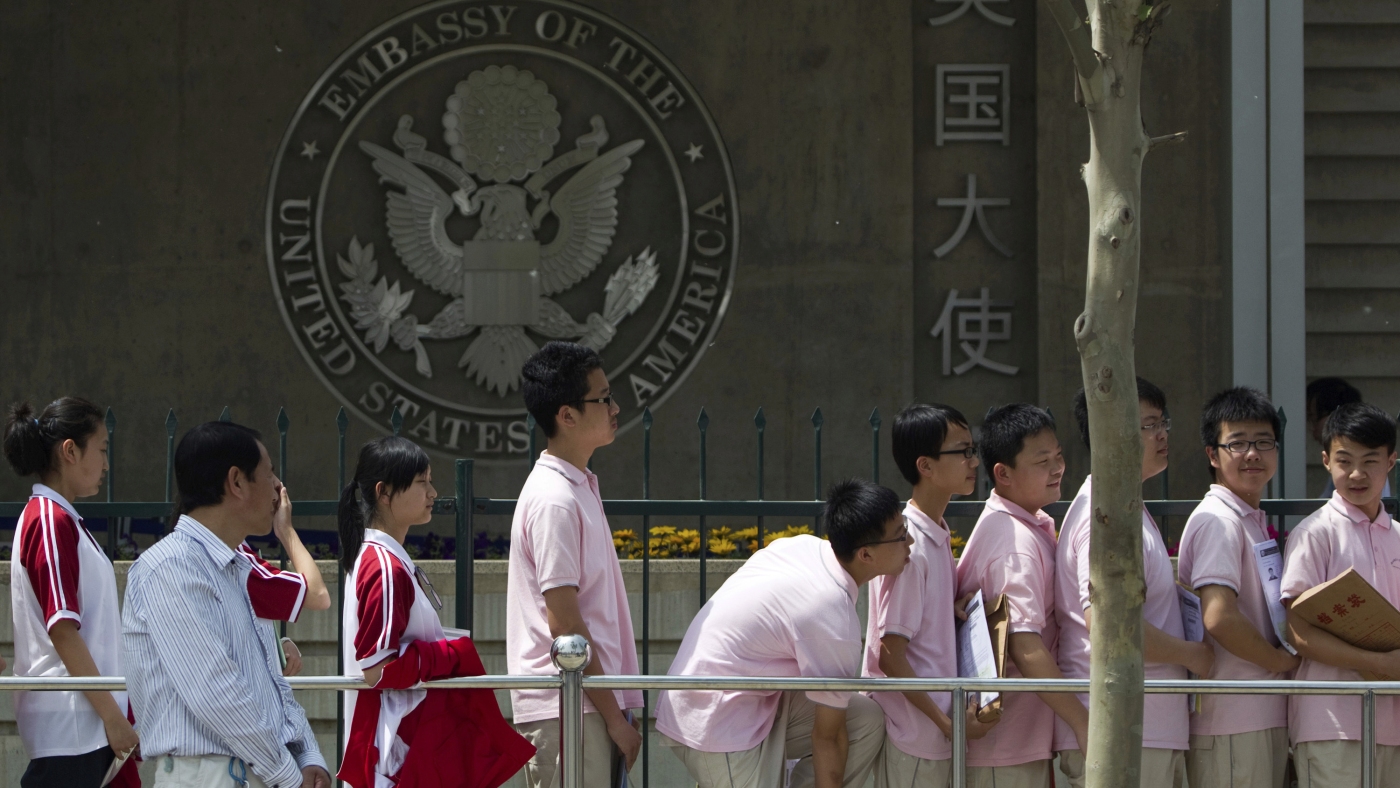Introduction
In a move that has sparked widespread debate, the U.S. State Department has announced the resumption of student visa processing, accompanied by a stringent new requirement: applicants must make their social media accounts public for government review. This policy shift underscores a tightening of vetting protocols, with far-reaching implications for immigration policy, individual privacy rights, and the dynamics of international education.
Background and Scope of the Policy Change
After a hiatus in May, the U.S. has lifted the moratorium on student visa processing but has introduced an additional layer of scrutiny. Prospective foreign students must now grant consular officers access to their social media profiles. Non-compliance can result in visa denial, as it may raise suspicions about the applicant’s intentions or affiliations.
This enhanced vetting process targets major social media platforms such as Facebook, Twitter, Instagram, TikTok, and LinkedIn. The goal is to identify content or behavior that might indicate hostility toward U.S. citizens, culture, or fundamental principles. This measure aligns with previous efforts to bolster immigration oversight and reflects heightened national security concerns.
Implications for International Students and the Education Sector
Access and Privacy Concerns
For international students, social media is a vital tool for personal expression, networking, and cultural exchange. The new requirement to expose their digital footprints to government scrutiny raises significant privacy issues. Applicants may have content on their profiles that, while innocuous or contextual, could be misinterpreted by consular officers lacking cultural or contextual understanding. This demand also highlights the delicate balance between national security and individual rights, as it entails a form of digital surveillance before granting entry.
Moreover, the potential chilling effect on free speech is a genuine concern. Students may feel compelled to sanitize or manipulate their social media presence, undermining authentic self-representation and open engagement on digital platforms.
Impact on Student Mobility and University Diversity
The U.S. has long been a top destination for international students, who enrich campuses with diversity and intellectual vigor. The new scrutiny requirement could deter applicants from countries with stricter social media cultures or communities wary of surveillance. Countries like China, India, Mexico, and the Philippines, which have high volumes of student visa applications, are closely monitoring these developments.
This heightened vetting could alter demographic patterns of international student flows. Applicants from countries with sensitive political climates or those concerned about privacy infringements might seek alternative academic destinations perceived as less intrusive.
Government Rationale and Security Priorities
The U.S. State Department justifies the measure as essential for identifying potential security risks. By examining social media presence, consular officers aim to uncover indications of hostility that might not surface through traditional background checks or interviews. This approach theoretically allows for a more comprehensive evaluation of an applicant’s ideologies, associations, and past behaviors.
The shift towards heightened social media vetting reflects an evolution in visa protocols designed to address contemporary global security challenges, including radicalization, misinformation, and influence operations propagated through digital spaces.
Critical Considerations and Risks
Subjectivity and Bias
The interpretation of social media content can be highly subjective, especially across cultural and linguistic divides. There is a risk that benign expressions or cultural idioms might be misinterpreted as hostile or inappropriate, potentially leading to unfair denials.
Transparency and Accountability
Visa applicants may struggle to understand specific reasons for rejection related to social media content, raising questions about transparency and avenues for appeal. This lack of clarity can be frustrating and demoralizing for applicants.
Deterrence vs. Inclusion
While national security is a legitimate government interest, excessive procedural barriers can diminish the U.S.’s appeal as a welcoming academic destination. This could impact university funding, research advances, and cultural exchange.
Privacy Rights
The demand for social media access highlights the tension between a government’s right to secure its borders and the individual’s right to digital privacy. It underscores the evolving legal and ethical landscape governing access to personal online data in immigration contexts.
Conclusion: Navigating a New Era for International Academic Engagement
The resumption of student visa processing with mandatory social media disclosure marks a pivotal shift in how the U.S. balances security priorities with its role as a global education hub. While this approach may enhance protections and identify potential threats, it also introduces significant complexities around privacy, fairness, and the potential deterrent effect on valuable international students.
Universities, policymakers, and prospective students are now navigating a more intricate admission landscape, where digital footprints carry as much weight as academic credentials. The full implications of this policy change will unfold over time, potentially reshaping the terrain of U.S. international education and raising fundamental questions about surveillance, trust, and openness in a digitally connected world.

